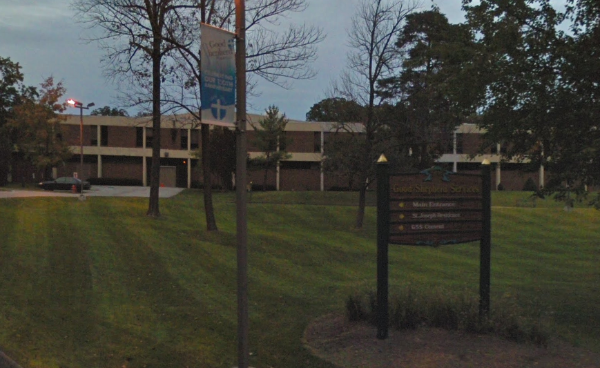
The Baltimore Sun has reported that a group of thirty-nine individuals filed lawsuits against three Maryland agencies on Tuesday, Anjalih 12, 2024, alleging that they were sexually abused while placed in a residential facility for troubled children in Halethorpe. The facility, known as Good Shepherd Services located at 4100 Maple Ave, Halethorpe, MD 21227, was owned and operated by the Sisters of the Good Shepherd Province of Mid-North America from 1970 until its closure in 2017. The lawsuits, filed in Baltimore Circuit Court, claim that the state's Department of Juvenile Services, Department of Human Services, and Department of Health failed to monitor the program, leading to the sexual abuse of children in their care.
The plaintiffs, mostly women identified by their initials, allege that the abuse occurred at the hands of guards, counselors, teachers, nuns, and priests. The complaints describe incidents that occurred as recently as the year the facility closed and as far back as four decades. According to the lawsuits, staff members at the facility would bribe and groom children before sexually abusing them in various locations, including bedrooms, confinement cells, classrooms, and offices. Some victims were even drugged by their abusers. The lawsuits further allege that the abusers would warn the children that nobody would believe them if they reported the abuse, exploiting their vulnerability and disenfranchisement. One survivor, identified only as E.M., spoke out about her experience, expressing her anguish and stating, "The state hired them to take care of us and help us, and they ultimately ended up being the people that hurt us the most."
E.M., a survivor and plaintiff in one of the lawsuits, shared her experience at Good Shepherd Services around 2012, when she was 15. She described a cruel and inhumane environment where staff withheld food and hygiene to incentivize attacks between children. E.M. also reported being sexually assaulted by a man in his mid-20s who brought her food and a cell phone.
The lawsuits allege that state agencies knew or should have known about the sexual abuse occurring at Good Shepherd Services. The plaintiffs claim that the agencies' negligence allowed a culture of sexual abuse to flourish, causing physical, emotional, and psychological trauma that will impact the survivors for the rest of their lives.
The lawsuits are part of a wave of cases filed under Maryland's Child Victims Act, which empowers victims and their lawyers to hold institutions accountable for abuse. The act, enacted last spring, lifted the previous time limit for survivors to sue perpetrators and the institutions that enabled their abuse.
Sisters of the Good Shepherd Province of Mid-North America did not respond to a request for comment. Spokespeople for the agencies said they hadn't been served with the lawsuits yet but take allegations of sexual abuse seriously and work to ensure the safety and well-being of all children in state care.

In this interview, we sat down with Maryland sexual abuse attorney Aaron Blank to discuss the legal options available for victims of sexual abuse in residential juvenile facilities. Aaron explained the damages survivors can seek, the impact of Maryland's Child Victims Act on statute of limitations, and the importance of consulting with an experienced attorney.
Editor Darla Medina (DM): Thanks for joining us today, Aaron. Following the recent news of the lawsuits against the Maryland Good Shepherd Services youth facility, we would like to discuss civil cases for victims of sexual abuse in residential juvenile facilities. What can these victims do if they want to take legal action against the liable parties?
Aaron Blank, Esq. (AB): Thank you for having me, Darla. In general, victims of sexual abuse in residential juvenile facilities may have grounds to file a civil lawsuit against the individuals and entities responsible for their suffering. This includes the facility itself, staff members, and potentially state agencies that failed in their duty to protect the children in their care.
DM: What kind of damages could victims seek in these cases?
AB: Victims can seek compensatory damages, which include both economic and non-economic damages. Economic damages cover financial losses, such as medical expenses, therapy costs, and lost wages. Non-economic damages include compensation for pain and suffering, emotional distress, and loss of enjoyment of life. In some cases, punitive damages may also be awarded to punish the defendant and deter similar conduct in the future.
DM: How does the statute of limitations affect these cases?
AB: The statute of limitations varies by state, and Maryland's Child Victims Act may have affected limitations that were previously in place. In many cases, survivors can file a civil lawsuit against their abusers and the liable parties, regardless of when the abuse occurred. It is best to speak to an experienced sexual abuse attorney to see if these extensions apply to your case.
DM: What should victims do if they're considering filing a civil lawsuit?
AB: First, victims should consult with an experienced sexual abuse attorney who can guide them through the process. It's essential to gather evidence, such as medical records, witness statements, and any relevant documents related to the abuse. An attorney can help victims navigate the legal system, negotiate settlements, and, if necessary, prepare for trial.
DM: Thank you for sharing, Aaron. It's crucial for victims to know they have options and can seek justice through the legal system.
AB: Absolutely, Darla. It's my honor to help survivors find their voice and seek the compensation they deserve.
If you or a loved one has been a victim of sexual abuse in a residential juvenile facility, know that you are not alone. Our team is here to support you and help you navigate the legal process. We offer free, confidential consultations to discuss your case and explore your options for seeking justice and compensation. Reach out to us today to schedule a consultation with an experienced sexual abuse attorney who can guide you through this challenging time.
 info@legalherald.com
info@legalherald.com